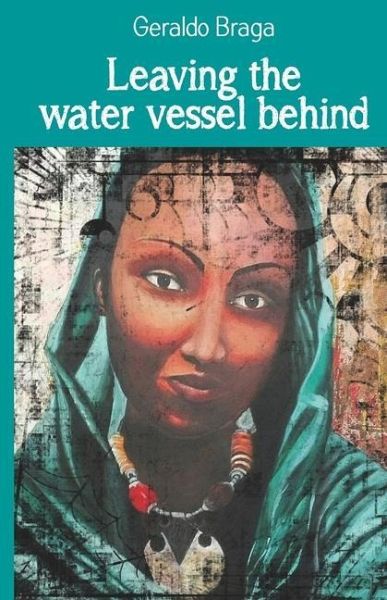
Leaving the water vessel behind
Versandkostenfrei!
Nicht lieferbar
In the early 2000s, while attending a Bible School in the United States, I realized how prone we are to becoming so religious and incapable of recognizing our state, similar to the state in which I found myself. It was then that my eyes were opened to see the life and struggles of the Samaritan woman and her people. I was utterly drawn and intrigued by her story. Since then, I started to research and read the context surrounding this story, and today I offer a cumulation of my findings to you in book format.In this introduction, I will illustrate evidence of the political and historical issues...
In the early 2000s, while attending a Bible School in the United States, I realized how prone we are to becoming so religious and incapable of recognizing our state, similar to the state in which I found myself. It was then that my eyes were opened to see the life and struggles of the Samaritan woman and her people. I was utterly drawn and intrigued by her story. Since then, I started to research and read the context surrounding this story, and today I offer a cumulation of my findings to you in book format.In this introduction, I will illustrate evidence of the political and historical issues of hate, prejudice, and animosities between Jews and Samaritans to further understand why Jesus had to go through Samaria to speak with the Samaritan woman at the well. With this background in mind, we will enter on a journey with Jesus and the Samaritan woman, as depicted in chapter four of John's Gospel verses 1-42.Jesus teaches us how to release ourselves from our personal and national pride, prejudices and misconceptions to enable us to reach individuals and people groups for him in a missional way.The main goal of this book is to assist people in delivering and setting themselves free from the stereotypes and misconceptions of ourselves and others. It is an invitation to a self-disclosure where I will journey readers through the conversation between Jesus and the Samaritan woman at the well. To accomplish this goal, I want to guide you through two different outcomes.- The first outcome is to learn from Jesus' examples from his conversation with the Samaritan woman at the well of Jacob. The second part of it is to learn some basic approaches from Him on how to reach others for the Kingdom. It will also bring awareness through self-reflection that can help us eliminate our prejudices.- Secondly, I believe that after we have reflected, we will grow in our understanding as an individual and our cultural patterns in the way Jesus would want us to. With that accomplished, we would have more success in the Gospel's word proclamation, discipleship making, and the church planting movement.It is much easier to do missions when we leave behind our heavy baggage, our denomination's dogmas and rules. Without awareness, we will be totally handicapped and unaware of our prejudices and thus incapable of fully helping others from different races, languages and nations without knowing how to empower them to expand in a cultural and relevant way.-This book works primarily as a tool for missionaries, especially those working among unreached areas, those resistant to the message or located in remote areas that do not have access to the Gospel message.-Secondly, this book hopes to serve as a guide to any committed pastors and leaders who want to disciple and teach new believers both in a biblical and relevant way without delaying and manipulating the truth.-The tertiary is a calling and motivation to a commitment to those in the body of Christ willing to pay the price to guide, disciple, and train people biblically to become multipliers for Jesus.-The Bible tells us about the lost sheep of Israel, the lost coin, and the Gentiles. They are all in a certain way the Samaritans of our world today, and they walk among us. They are the rejected, the downcast, the prostitutes, gays/lesbians, drugs-addicts, the homeless, the urban tribes, minority groups, and the unseen. They are overlooked and ethnic-centralized by us as a society.I trust this book is relevant because it is a comprehensive cross-cultural Bible guide that provides a historical, cultural, geographic, and religious context for understanding. This storytelling is told and adapted to our culture today based on 25 years of a contextual trans-cultural mission experience.In the book, you will develop the core factual understanding of the Samaritan woman's story containing her release to a higher purpose and a sense of mission.







